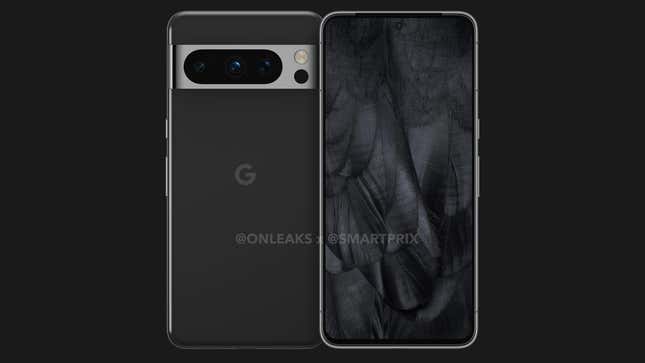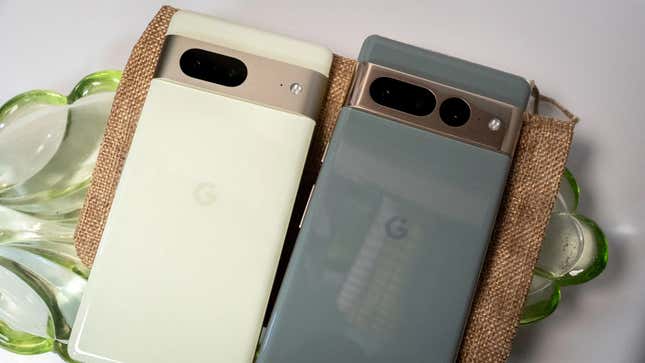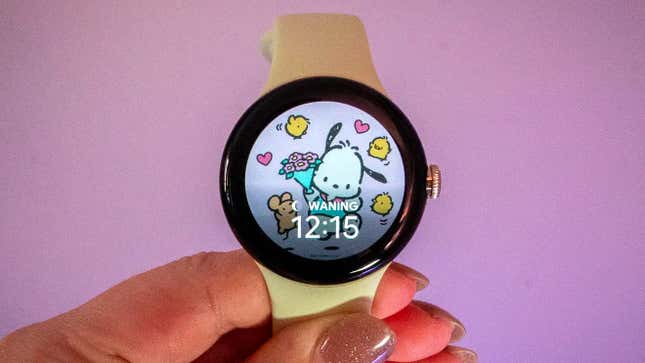Google’s next flagship has leaked, and a launch date has been set. The Pixel 8 will arrive less than a month after Apple plans to release the iPhone 15. Smartphone fall is coming!
Google is hosting an in-person Pixel launch event on Oct. 4 in New York City. The excitement begins at 7 A.M. PT / 10 A.M. ET, and we’ll be on the ground to introduce you to the new Pixel family of devices. These events are typically livestreamed to the general public, so if you can’t be there in person, you can watch on YouTube.
We expect Google will announce the efficient Pixel 8 and the well-equipped Pixel 8 Pro. We’re also expecting a thinner second-gen Pixel Watch smartwatch to match. But we’re still figuring out what this year’s launch is about and what marquee features Google will bring to its ecosystem.
What’s the deal with the Pixel 8?

With every iteration of a Pixel device, Google usually has a narrative around unique features and how new abilities and tricks outrank the competition. We’re still trying to figure out the story with the Pixel 8 and 8 Pro.
What we know so far—and what has been confirmed mainly by Google’s leaked marketing materials—is that the Pixel 8/8 Pro will have markedly rounder corners, which could make it narrower and easier to grip. We know the camera bar has been extended along the backside to include the Pixel 8 Pro’s third lens and that a bright color and dark colorway will be available, since that’s what we’ve seen circulating through the rumor mill. And we know the curved display around the edges is likely going bye-bye—it means cases will fit flush, and you won’t get as much dust within the edges as on the Pixel 6 and Pixel 7.

The other parts of the Pixel 8’s design that we’re still trying to figure out is whether there will be a physical SIM slot or if it’s ditching it to show off to the iPhone. Google also has yet to reveal the special color. Will it be a green motif like with the Pixel 7/7 Pro? Or will it be a matching pair of blue hues like this year’s Pixel 7a?
The Pixel 8’s story sounds like it will be a marked improvement on the features it’s already known for. The phone’s famous Night Sight ability will likely be extended to video recordings so you can shoot night footage without worrying about additional lighting. The Pixel 8 Pro, which will have a third camera lens, might also adopt a sharper, higher-resolution ultra-wide-angle lens for archive-worthy landscape shots.

The Pixel 8 and 8 Pro could be Android’s first foray into satellite connectivity akin to Apple’s Emergency SOS via satellite. The story on Twitter is that Google is partnering with Garmin for its existing Iridium satellite network, which Qualcomm will also connect to when it rolls out satellite connectivity to other Android devices later this year. We’re still figuring out if you’ll have to pay extra for that connectivity on both Google and other Android phones. We’ll know soon enough.
What about what’s inside the Pixel 8?
This year’s Pixel 8/8 Pro will likely introduce Google’s third-gen Tensor G3 processor. In the Twitter rumor mill, it’s codenamed Zuma, and that same source is suggesting the chipset is based on Samsung’s 3nm node, which should prove to be as powerful and efficient as Apple’s Bionic silicon.
The Pixel 8/8 Pro will likely have the same pairing of RAM, though we’d love to see 12GB of memory in the small Pixel 8 and the larger Pixel 8 Pro since the Pixel 7a—the mid-range series—comes standard with 8GB.
The under-display fingerprint sensor isn’t leaving the Pixel series. However, Google might upgrade to an ultrasonic sensor, which should be faster than its current optical one. And speaking of sensors, other sources suggest a temperature sensor will also be on the device.
Pixel Watch 2, too

Google’s first-gen Pixel Watch was fine, but the Pixel Watch 2 will hopefully improve on the elements its predecessor was missing. Namely, the Pixel Watch 2 needs better battery life to surpass the Samsung Galaxy Watch 6. Earlier in the year, 9to5Google spoke to sources alleging that switching from Google’s CPU to a Snapdragon chip would help “boost” the battery.
Google plans to make Fitbit a significant part of the Pixel Watch 2’s introduction, a little more than it did with the first-gen. There will be actual sensors in the Watch 2 to accommodate the Fitbit app’s wellness-tracking expertise. There could be an electrodermal activity (cEDA) sensor for tracking stress levels throughout the day by measuring sweat levels on the skin’s surface. We’re also hoping for a skin temperature sensor, which Samsung has offered for cycle and sleep tracking since the Galaxy Watch 5.
With the Pixel Watch 2 launch, we’ll also see this Fitbit remodel floating around for a while. The one thing that Google has that Samsung doesn’t is a health and wellness brand that’s already well-established. Samsung Health certainly tries, but it takes a bit of finagling before it works with other ecosystems.
We’ll discover all this once Google officially announces everything on Oct. 4. Stay tuned!

